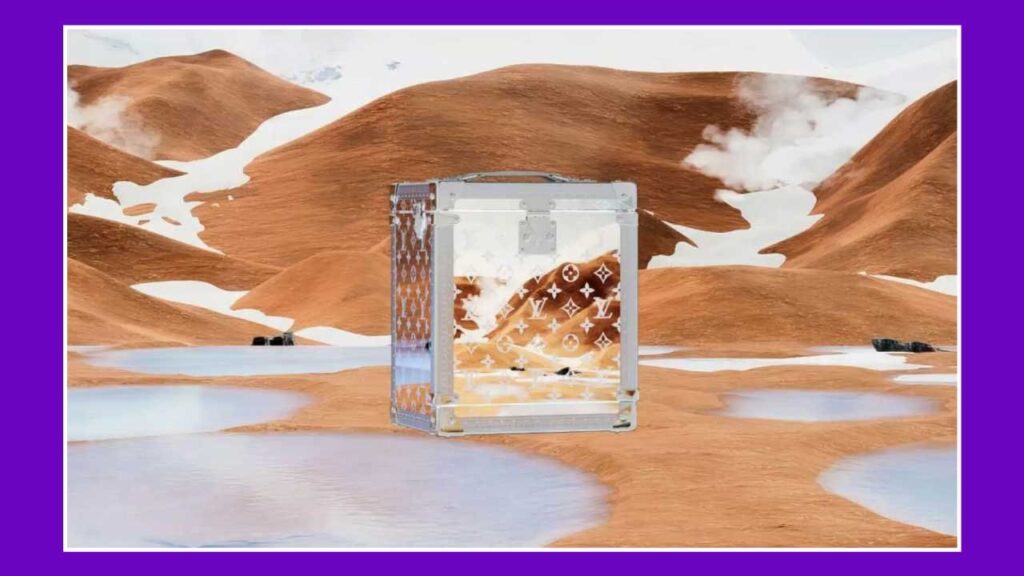Imagine linking a physical object like a gold ring or Rolex watch to an NFT. Yup, that’s possible now, and the intersection of the physical and the digital has birthed a revolutionary concept known as “Phygital NFTs.”
Let’s explore how these digital twins (that’s the other name for Phygital) are shaping the world of ecommerce.
First of all, how does buying a picture equate to buying a physical product? I mean, what’s the guarantee that I will be getting that physical product when I buy that NFT?
Well, the answer to that question is a question: “What’s the guarantee that Nike delivers shoes to your home once you order them?”
Now, how come all these big brands are using the Phygital experience?
Well, unlike a normal NFT, where you own just the picture or music or art, in the case of Phygital NFTs you’ll be owning the product that is attached to the NFT (along with the NFT).
Imagine buying a picture (aka an NFT) of a pair of shoes from Nike, and for that you’ll also receive the pair of shoes in real life. Isn’t it cool?
But…. What’s the point?
Phygital NFTs actually benefit both brands and customers in ways that a normal online e-commerce purchase (like ordering a coffee machine on Amazon) couldn’t benefit. Let’s have a look at those:
Phygital NFTs introduce a new dimension of tradability that goes beyond traditional e-commerce models. With traditional online purchases, you own the physical product, but its resale value is often limited.
In contrast, Phygital NFTs combine the ownership of a physical item with the benefits of blockchain technology. This allows for a secure and transparent record of ownership transfers. As a result, consumers can engage in a secondary market for Phygital NFTs, trading these unique digital representations of physical products.
This opens up opportunities for collectors and enthusiasts to buy, sell, and trade valuable items in a digital environment, fostering a new level of scarcity and demand.
Phygital NFTs extend the utility of digital ownership beyond the initial purchase. While traditional e-commerce transactions involve receiving a physical product, the ownership experience often ends there.
Phygital NFTs, on the other hand, can enhance the ownership experience by granting access to additional digital content or services related to the physical item. For instance, purchasing a Phygital NFT for a luxury watch could grant access to exclusive watch-related apps, virtual events, or customization options. This added layer of utility increases the value proposition of owning both the physical item and its associated digital representation.
Phygital NFTs offer the potential for unique and immersive experiences that bridge the gap between the physical and digital realms. Brands can create interactive and engaging experiences for consumers through their Phygital NFTs.
Imagine purchasing a Phygital NFT for a high-end fashion item and gaining access to virtual fashion shows, behind-the-scenes content, or even the ability to virtually try on different styles. These experiences not only deepen consumer engagement but also create memorable connections between the brand and its customers, fostering brand loyalty and advocacy.
Imagine if you’d like to know whatever you are buying is actually what you are buying… I mean details like:
Anyways, there is this brand called Jamaica Blue Mountain Coffee, that sells coffee (obviously). They have successfully implemented the concept of Phygital NFTs in their supply chain management to avoid counterfeiting.
Every coffee barrel is allocated a distinct NFT, and through individualized QR codes, consumers can thoroughly trace the journey of their beans. These QR codes provide authenticated information spanning from the initial stages of picking, sorting, and barreling, to the final steps of roasting and transportation. All of these things guarantee the legitimacy.
By attaching a unique NFT to each physical item, brands can establish a verifiable and tamper-proof record of a product’s journey from creation to delivery.
Ok, now that you know what benefits they offer, let’s find out how these NFTs actually work.
Phygital NFTs are a fusion of the physical and digital realms, hence they have 2 components.
The first component involves the NFT itself, which is a distinct digital token containing specific identifying details stored on a blockchain.
This blockchain-based NFT is created through smart contracts and resides within the digital landscape aka on-chain (also often referred to as the metaverse).
The second component is the tangible, physical item associated with the NFT.
This could be a physical object, a product, or even a service provided in the physical space.
So, just like ordering a product on amazon, you can buy the NFT and that purchase will guarantee that the product will be delivered to you.
Louis Vuitton released an ultra limited edition NFT collection called ‘Treasure Trunks‘, with each NFT costing around $41,600.
The original digital Treasure Trunks are designated as ‘soulbound’ or non-transferable tokens. Conversely, the keys are standard NFTs. That means, these keys can be resold on the secondary market, entitling the buyer to obtain the associated physical product. This resale is permissible unless the physical product has already been dispatched to the original customer, naturally.

Companies like Uniqly are building the infrastructure to deploy Phygital NFTs.
From Art to the field of supply chain, from Starbucks to a small business in India, Phygital NFTs come with various use cases. And they are being used from small businesses to big brands.


In the realm where the physical meets the virtual, Phygital NFTs stand as a pioneering force, reshaping commerce by uniting ownership, utility, and immersive experiences.
This convergence offers brands and consumers an innovative avenue for forging deeper connections and enhanced engagements, marking the dawn of an era defined by trust, authenticity, and boundless creativity.